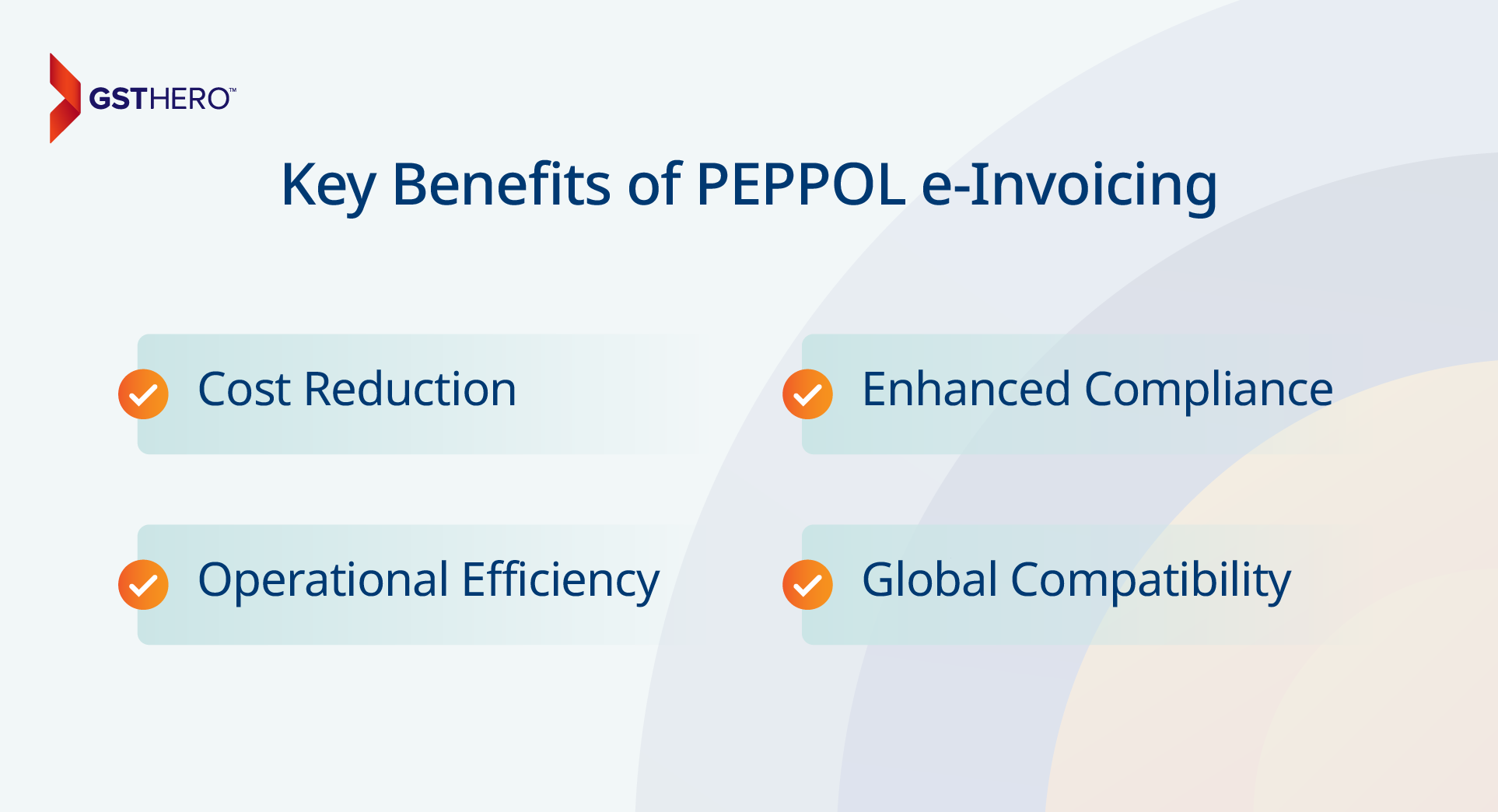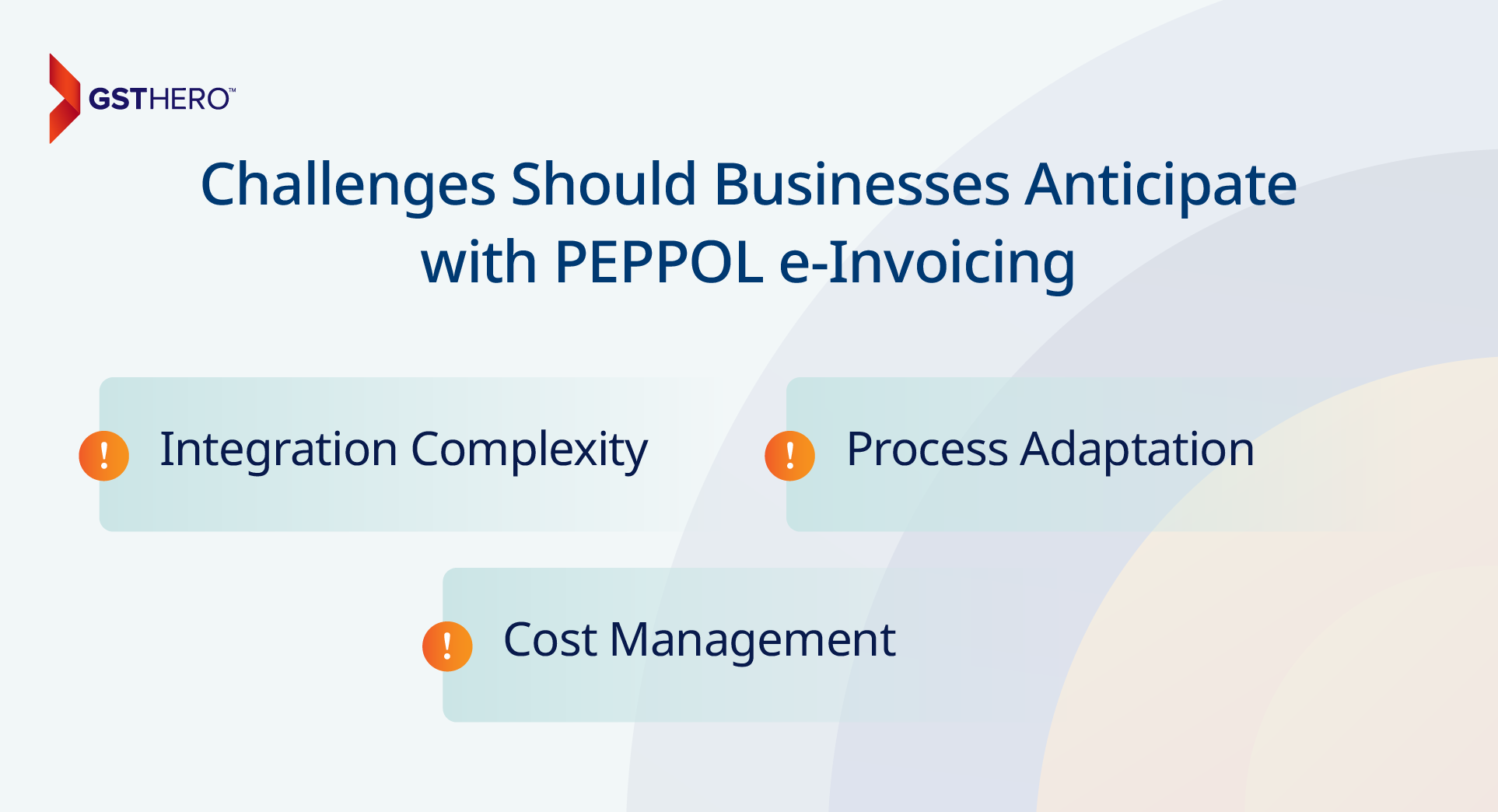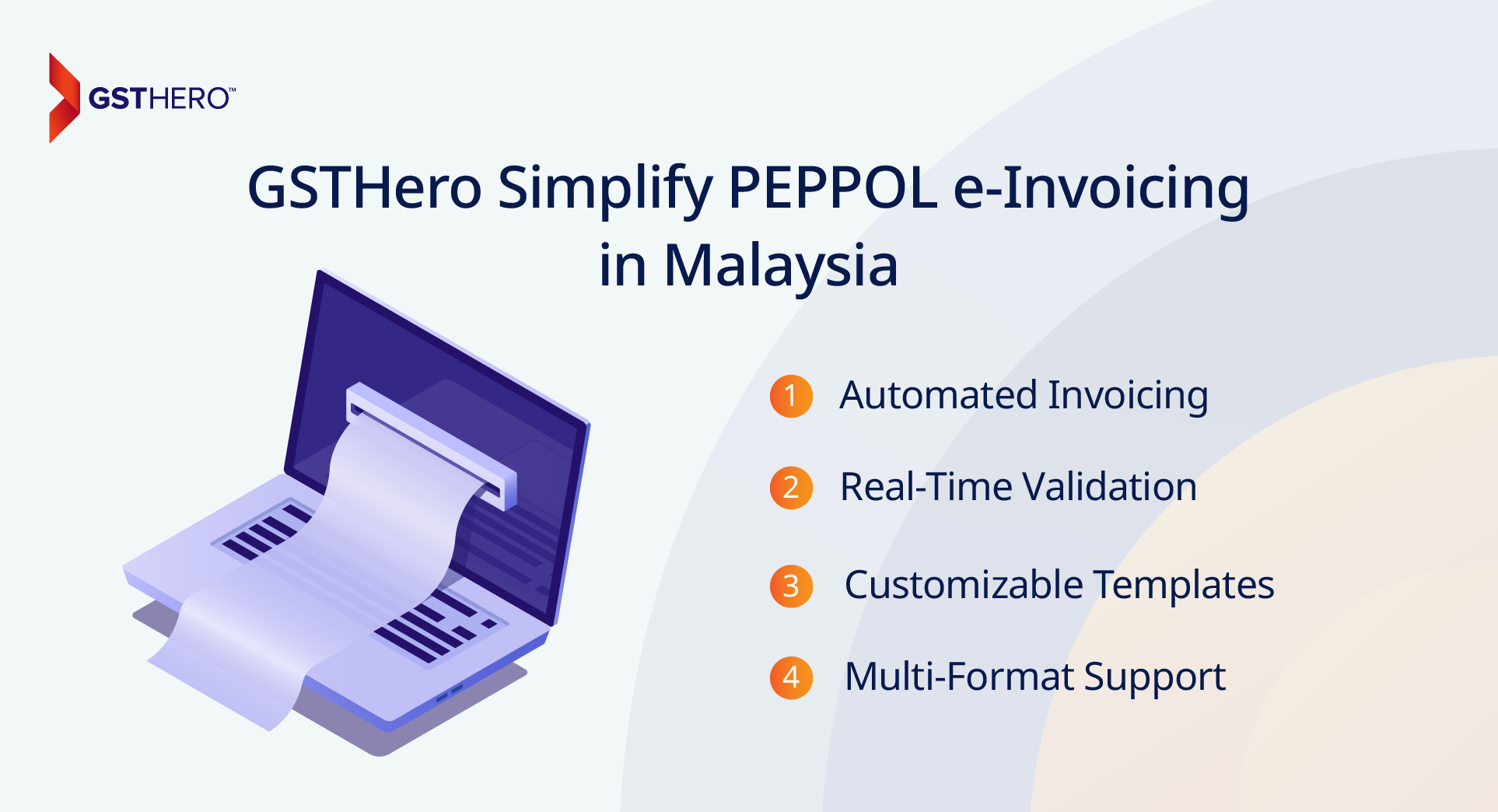By 2026, PEPPOL E-Invoicing in Malaysia will become mandatory, transforming how businesses manage financial operations. For finance teams, this mandate offers more than just compliance—it provides an opportunity to unlock efficiencies that traditional invoicing systems cannot achieve.
The shift e-invoicing in Malaysia extends beyond mere regulatory alignment. It signifies a strategic transformation, streamlining workflows, reducing costs, and enhancing global trade compatibility. Early adoption of e-invoicing software in Malaysia positions businesses for streamlined workflows and better financial oversight. Explore how industries like retail and healthcare are already leveraging PEPPOL e-invoicing for competitive advantage.
This blog delves into the essentials of PEPPOL e-invoicing in Malaysia. We'll cover how the system works, the advantages for finance teams, and the necessary steps to ensure compliance while addressing potential hurdles.
Understanding the framework of PEPPOL e-invoice Malaysia is essential, whether preparing for the transition or exploring its benefits. It enables businesses to remain competitive in today's dynamic business environment and ensures long-term operational success.
Why is e-Invoicing Important, and What Should You Know About It?
PEPPOL, which stands for Pan-European Public Procurement Online, is a standardized digital framework prepared to simplify the exchange of electronic documents, including invoices, between businesses and government entities.
PEPPOL e-Invoicing simplifies transactions with local and international business partners by offering a structured approach to invoicing. By adopting this system, finance teams can significantly reduce manual workloads, enhance accuracy, and improve cash flow management.
Moreover, this transition to electronic invoicing software ensures better resource allocation and strategic focus for finance teams. For an in-depth guide on compliance, check out our Complete Guide to E-Invoicing Compliance in Malaysia.
Understanding E-Invoicing in Malaysia
PEPPOL (Pan-European Public Procurement On-Line) e-invoicing is revolutionizing business transactions globally, including in Malaysia. With the 2026 e-invoice Malaysia implementation date set by LHDN, e-invoicing Malaysia guidelines are in place to ensure compliance and streamline financial workflows. Learn more about how the MyInvois platform works.
The PEPPOL e-invoicing process flow involves standardized document formats validated through the PEPPOL network, automating compliance checks and reducing manual errors. E-invoicing software in Malaysia supports businesses with seamless integration into existing ERP systems, enabling compliance with platforms like the MyInvois portal and other regulatory frameworks.
For businesses with specific needs, self-issued invoices and customizable templates provided by the best e-invoicing solutions in Malaysia simplify workflows, making the transition smooth and efficient.
How Is Malaysia Transitioning to Digital e-Invoicing?
Malaysia's phased approach to PEPPOL e-invoicing is driven by MDEC and the Inland Revenue Board (LHDN). It aims to create a fully digital invoicing ecosystem by 2026.
Early preparation is crucial for finance departments, as this timeline allows organizations to gradually integrate PEPPOL standards and realize operational benefits well before the mandatory compliance date. Those who embrace this shift sooner also gain a competitive advantage through improved financial processes. CFOs can explore our E-Invoicing Checklist for Malaysia to get started.
What Are the Key Benefits of e-Invoicing Peppol?

PEPPOL e-Invoicing offers several distinct benefits:
- Cost Reduction: Automating invoicing processes reduces costs associated with manual data entry, document handling, and postage.
- Operational Efficiency: The digital framework speeds up invoicing workflows, minimizing errors and delays, which helps maintain a healthy cash flow.
- Enhanced Compliance: PEPPOL provides built-in compliance checks, lowering the risk of regulatory fines or penalties. This aligns with e-invoicing Malaysia LHDN requirements.
- Global Compatibility: As a recognized standard, the PEPPOL Network simplifies cross-border transactions, making it easier for companies to expand internationally.
Businesses adopting e-invoicing software Malaysia gain a competitive edge by optimizing their financial processes and meeting e-invoicing Malaysia guidelines efficiently.
How Does e-Invoicing Works in Malaysia
PEPPOL e-Invoicing is designed to integrate seamlessly with existing financial processes, supporting the organization's compliance and operational goals. Here's a brief glimpse at how the system functions:
Invoice Creation: The business generates an invoice according to PEPPOL's standardized structure, ensuring it meets specific formatting requirements.
Network Validation: Invoices are validated through the PEPPOL network, which automates compliance checks.
Immediate Processing: Once validated, invoices are transmitted and processed instantly, reducing delays and expediting payment cycles.
By automating these processes, finance teams can create an accurate audit trail, ensuring transparency and simplifying reporting requirements.
What Are the Compliance Requirements for Adopting PEPPOL e-Invoicing?

Adopting e-invoicing implementation Malaysia requires careful planning. Here are the critical steps for finance departments to consider:
Choose PEPPOL-Compatible Software: Adopting software that integrates smoothly with the PEPPOL network is essential for efficient invoicing.
Engage a PEPPOL Access Point Provider: Partnering with an authorized Access Point provider enables the organization to operate within the PEPPOL network.
Provide Training and Support: Finance teams need to understand PEPPOL requirements and processes, so regular training and support are vital.
These steps help ensure the organization meets all PEPPOL Network requirements, positioning the finance department as a compliant, streamlined function. Don't miss the Malaysia E-Invoicing Compliance Checklist to avoid pitfalls.
How Can Organizations Prepare for PEPPOL e-Invoicing Implementation?
Transitioning to PEPPOL e-Invoicing is a significant change, and preparation is critical. Here's how finance leaders can guide their teams through the process:
- Evaluate System Readiness: Ensure the organization's ERP or accounting systems are compatible with PEPPOL, directly or through integration with an Access Point provider.
- Establish Key Partnerships: Collaborate with trusted Access Point providers and, if necessary, consulting partners to support the transition.
- Create a Training Plan: Equip the finance team with the skills and knowledge to operate effectively within the PEPPOL framework.
- Monitor Initial Costs: Track initial implementation costs against anticipated long-term savings to validate the investment in e-Invoicing.
You can also explore our API integration guide for system readiness and connectivity insights.
What Challenges Should Businesses Anticipate with PEPPOL e-Invoicing?

Transitioning to e-invoicing solutions comes with potential hurdles, including system integration and cost management. Businesses must address these proactively to ensure smooth implementation.
Integration Complexity: Modifying existing systems to support PEPPOL standards requires technical expertise and resources.
Process Adaptation: Moving from manual to digital invoicing may involve adjustments to existing workflows and routines.
Cost Management: Implementation costs can vary, so finance leaders must carefully manage these expenses.
To ensure a seamless transition to PEPPOL e-Invoicing and circumvent common pitfalls, finance departments must proactively address implementation challenges; for detailed insights into managing implementation costs and risks, including potential financial penalties, refer to resources such as those discussing e-Invoicing Penalties in Malaysia.
What Challenges Should Businesses Anticipate with PEPPOL e-Invoicing?
Transitioning to e-invoicing solutions comes with potential hurdles, including system integration and cost management. Businesses must address these proactively to ensure smooth implementation.
Integration Complexity: Modifying existing systems to support PEPPOL standards requires technical expertise and resources.
Process Adaptation: Moving from manual to digital invoicing may involve adjustments to existing workflows and routines.
Cost Management: Implementation costs can vary, so finance leaders must carefully manage these expenses.
By addressing these challenges proactively, finance departments can avoid common pitfalls, ensuring a smooth transition to PEPPOL e-Invoicing.
How GSTHero Empowers Finance Teams for PEPPOL e-Invoicing Compliance in Malaysia
GSTHero, a trusted provider of e-invoicing solutions, offers a streamlined process for businesses transitioning to PEPPOL standards Malaysia. Fully compliant with LHDN and PEPPOL standards, GSTHero ensures that organizations can meet regulatory requirements without disruption to their operations.
The platform integrates seamlessly with leading ERP systems such as SAP, Oracle, and Netsuite, allowing for a smooth implementation into existing workflows. GSTHero's features include automated invoice generation and real-time validation, which reduce manual errors and enhance overall efficiency.
Customizable templates and multi-format support ensure flexibility in adapting to various invoicing requirements, making GSTHero a versatile solution for businesses of all sizes. These abilities allow finance teams to simplify procedures and allocate their time to better strategic activities.
With improved cash flow visibility and expert support, GSTHero empowers organizations to maintain compliance while optimizing financial operations. It stands as an ideal partner for navigating Malaysia's e-invoicing mandate, helping businesses achieve greater efficiency and operational success.
How Does GSTHero Simplify PEPPOL e-Invoicing in Malaysia?

GSTHero's fully compliant e-invoicing solution integrates with leading ERP systems like SAP, Oracle, and Netsuite. Key features include:
- Automated Invoicing: Reduces errors and improves efficiency.
- Real-Time Validation: Ensures compliance with LHDN and PEPPOL standards.
- Customizable Templates: Adapts to diverse business needs.
- Multi-Format Support: Enhances flexibility for various invoicing scenarios.
With GSTHero, businesses can streamline e-invoicing compliance, reduce manual efforts, and gain better cash flow visibility, in line with the e-invoicing Malaysia guidelines.
Conclusion
The shift to PEPPOL e-invoicing in Malaysia marks a transformative phase for financial operations. Early preparation, along with tools like GSTHero, ensures businesses stay compliant while unlocking operational benefits.
GSTHero's e-invoicing software in Malaysia simplifies compliance, enabling businesses to navigate the 2026 mandate seamlessly while gaining a strategic edge in the digital economy.
FAQ On PEPPOL e-Invoicing in Malaysia
PEPPOL e-invoicing in Malaysia enables businesses to exchange standardized electronic invoices under the Pan-European Public Procurement On-Line framework. It ensures compliance, reduces manual errors, and improves operational efficiency across financial workflows.
The PEPPOL standard defines protocols for the seamless exchange of electronic invoices. It ensures compatibility between businesses and government systems in Malaysia, simplifying the e-invoicing process flow and enhancing compliance.
By 2026, PEPPOL e-invoicing will be mandatory in Malaysia. Businesses must implement e-invoicing software in Malaysia to comply with regulations, streamline financial operations, and avoid penalties.
The MyInvois portal supports PEPPOL e-invoicing by validating invoices against compliance requirements. It helps businesses in Malaysia adhere to regulatory frameworks and ensures smooth e-invoicing implementation.
E-invoicing implementation involves integrating PEPPOL-compatible e-invoicing software, connecting with authorized access points, and aligning financial systems with regulatory standards like the MyInvois portal in Malaysia.
PEPPOL e-invoicing offers cost reduction, improved compliance, and enhanced workflow efficiency. It simplifies cross-border transactions and helps businesses adopt the best e-invoicing solutions in Malaysia for operational excellence.
Self-issued invoices are created internally by businesses following PEPPOL standards. They ensure compliance with e-invoicing implementation requirements in Malaysia while streamlining invoice management for high transaction volumes.
GSTHero is among the best e-invoicing solutions in Malaysia, offering PEPPOL-compliant features such as real-time validation, ERP integration, and automated workflows. It simplifies e-invoicing compliance in Malaysia for businesses.
The process starts with invoice creation using e-invoicing software, followed by validation through PEPPOL and compliance checks via the MyInvois portal. Which also ensures secure and accurate transactions for Malaysian businesses.
E-invoicing compliance in Malaysia ensures adherence to PEPPOL standards, reducing penalties and improving operational efficiency. Businesses must streamline financial operations and prepare for the 2026 mandate.
- Phase 1 (August 2024): Large players with a revenue of at least 100 million RM.
- Phase 2 (January 2025): Organizations between the RM25-100 million range.
- Full Implementation (July 2025): It is mandatory for all businesses, including SMEs, to implement e-invoicing.
